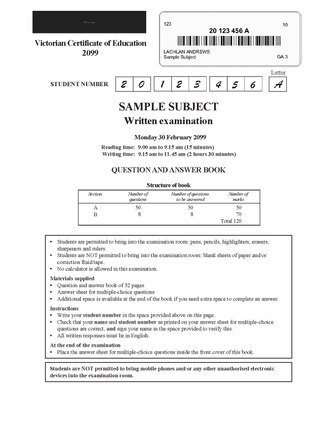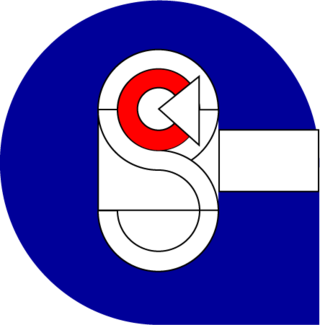Related Research Articles

The Victorian Certificate of Education is one credential available to secondary school students who successfully complete year 11 and 12 in the Australian state of Victoria as well as in some international schools in China, Malaysia, Philippines, Timor-Leste, and Vietnam.

Geelong High School is a co-educational, public, secondary school located in East Geelong, Victoria, Australia. The school opened in 1910, making it one of Victoria's oldest state secondary schools, and moved to its current site in 1915. The current principal is Davin Reid.

Viewbank College is an Australian public secondary school located in the north eastern suburb of Viewbank, in Melbourne, Australia.

The Victorian Curriculum and Assessment Authority (VCAA) is a statutory authority of the Victoria State Government responsible for the provision of curriculum and assessment programs for students in Victoria, Australia. The VCAA is primarily accountable to the Victorian Minister for Education. It is also responsible to the Minister for Training and Skills and the Minister for Families and Children in relation to sections of Part 2.5 of the Education and Training Reform Act 2006.
The General Achievement Test is a test of general knowledge and skills including communication, mathematics, science and technology, the arts, humanities and social sciences in the Australian state of Victoria.

Gisborne Secondary College is a co-educational secondary school located in Gisborne, Victoria, established in 1981. The current enrolment is 1071 students. Students attend from years seven to twelve. The college serves a large proportion of the southern Macedon Ranges district in Victoria, with over 800 students attending school via school bus. The College has a large range of subject offerings, including electives from Year 9 onwards, and at the Senior School, VCE, VCE-VM, and VET programs.

Mount Lilydale Mercy College is a Roman Catholic co-educational secondary school located in the Melbourne suburb of Lilydale, Victoria, Australia, founded by the Sisters of Mercy in 1896. The College serves the needs over 1500 students.

Education in Victoria, Australia is supervised by the Department of Education and Training (DET), which is part of the State Government and whose role is to "provide policy and planning advice for the delivery of education". It acts as advisor to two state ministers, that for Education and for Children and Early Childhood Development.
Teaching in Victoria, Australia is regulated by the Victorian Institute of Teaching, through the Department of Education and Training (DET), which is part of the State Government. The DEECD is biggest operator of schools in the state, and along with the independent and Catholic school systems have an interest in teaching as the operator of schools and employer of teachers.

MacKillop Catholic Regional College is a Catholic secondary school in Werribee, Victoria, Australia. It has strong connections to the Josephite sisters, founded by Mary MacKillop. The college was founded as Mary McKillop Girls College in 1970, providing junior secondary education to female students in Years 7, 8 and 9. As demand for secondary education grew in the area, the College expanded to cater to male and female students from Years 7 to 12 and changed its name to reflect these changes. In 2022, MacKillop reached their 50 year anniversary, however celebrations were curtailed due to the COVID-19 Pandemic.

Kurunjang Secondary College is a co-educational secondary school built in 1986, in Kurunjang, Victoria, Australia.
TAFE Gippsland, formerly Advance TAFE & East Gippsland Institute of TAFE is a TAFE institute located in the Gippsland region of Victoria, Australia. It has campuses located at Bairnsdale, Lakes Entrance and Sale as well as specialist education centres located across the south-east of Victoria, encompassing the Wellington Shire and East Gippsland Shire regions.

The Australian Tertiary Admission Rank (ATAR) for all domestic students, or the ATAR-based Combined Rank (CR) for all International Baccalaureate (IB) students, are the primary criteria for determining the Selection Rank (SR) for admission into undergraduate courses in Australian public universities. Domestic Students are students who are Australian or New Zealand citizens, or Australian permanent residents, or the holder of long-term refugee visa. ATAR & CR are not applicable for international students as they must apply directly to each university separately and their SR is calculated by the university. The ATAR is calculated by each state or territory's own state-level Tertiary Admission Center (TAC) for all domestic students studying within their geographical limits. Interstate Domestic Students must apply to the TAC of their respective state. The Selection Rank is calculated by each University separately based on the ATAR or CR as well as additional points for each university's unique criteria such as a student's educational disadvantage or subject performance. ATAR is not a mark, but rather a percentile ranking between 0.00 and 99.95 which shows the student’s relative position compared to all other students in the range of 16 to 20 years old who would have completed their respective year 12 exams in that state in a year.
Alexandra Secondary College is a public coeducational school situated in Downey Street, Alexandra, Victoria.
Bayswater Secondary College is a state secondary college located in the suburb of Bayswater in eastern Melbourne, Australia.
Technical Education Centres (TEC) are purpose built centres for the delivery of practical secondary school and vocational education programs on a TAFE campus in the state of Victoria, Australia. They aim to attract young people 16–19 years of age to provide trade skills training while they complete a secondary school certificate. Each TEC is administered by the TAFE Institute it is a part of.
Charles La Trobe P–12 College is a public, co-educational high school in Macleod, Victoria, Australia. It opened in 2011, the result of a merger between Banksia La Trobe Secondary College, Bellfield Primary School, Haig Street Primary School and Olympic Village Primary School.

Doncaster Secondary College is a secondary school located in the Melbourne suburb of Doncaster.
Phoenix P–12 Community College is a school located in the Ballarat suburb of Sebastopol, Victoria, Australia. It formed in 2011 with the amalgamation of Sebastopol College and Redan Primary School. The school was named after the Phoenix mine, located south of the school.
Stott's College is a private college in Australia. The primary campus is located in Melbourne, with three other campuses located in Sydney, Brisbane, and Perth.
References
- ↑ Savage, Alison; Bell, Frances. "Baillieu defends TAFE cuts". ABC News. Retrieved 14 December 2020.
- ↑ Himmelreich, Everard. "MP blasts axing of equine courses". The Standard. Retrieved 28 November 2020.
- ↑ "Review into vocational and applied learning pathways in senior secondary schooling". Victorian Government. Retrieved 19 September 2023.
- ↑ John Firth. "Final Report: Review into vocational and applied learning pathways in senior secondary schooling" (PDF). Department of Education. Retrieved 19 September 2023.
- ↑ Carey, Adam. "Vocational high school certificate to be scrapped". The Age. Retrieved 28 November 2020.
- ↑ Carey, Adam; Precel, Nicole (28 January 2023). "Students to benefit from hands-on reform of VCE". The Age. Retrieved 19 September 2023.
- ↑ "Victorian Senior Secondary Certificate Reform". VCAA. Retrieved 1 February 2022.